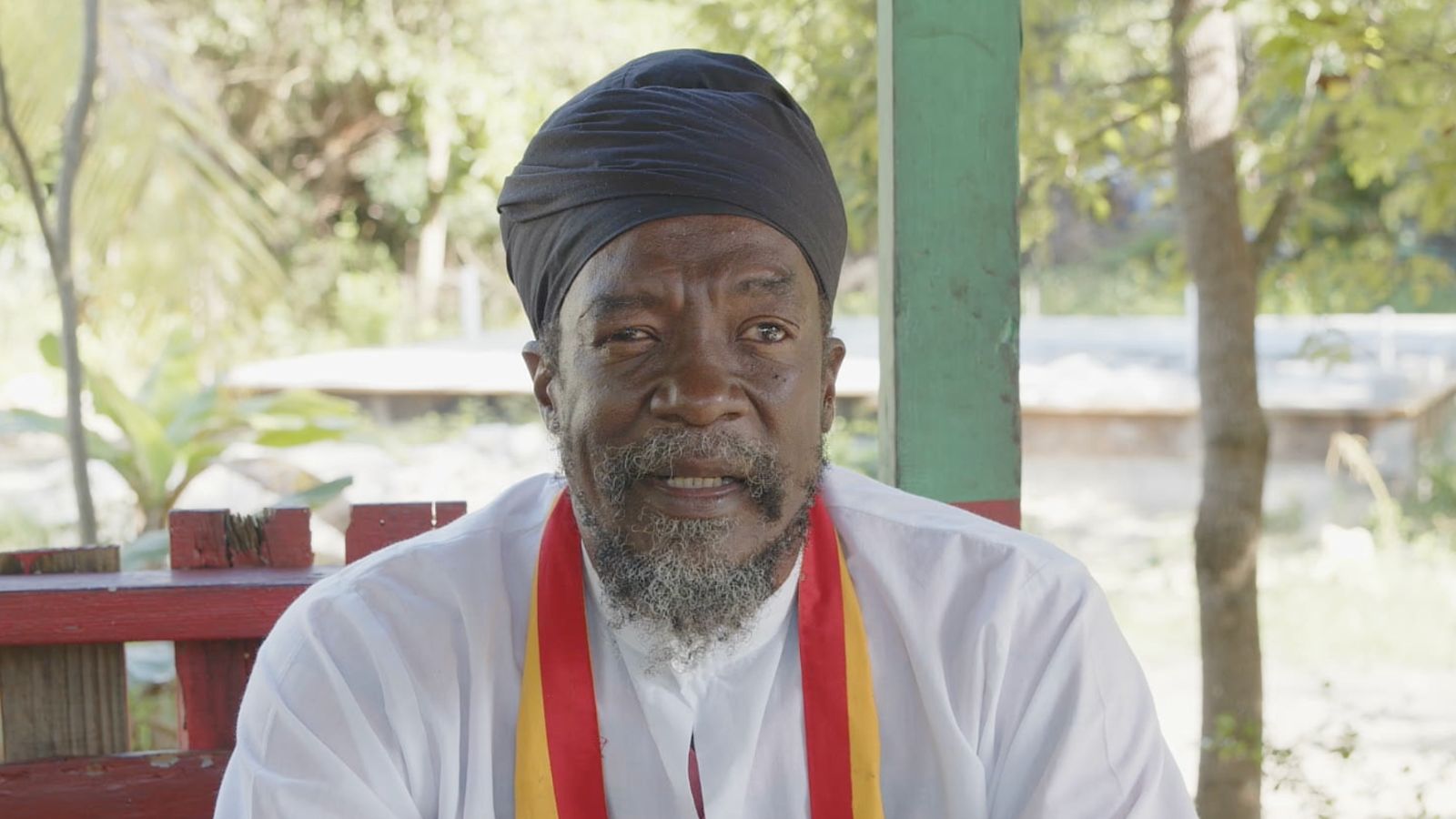Rastafari and the Reparations Movement
The Repair Campaign spoke with The Right Honourable Priest Rithmond McKinney, Royal Ambassador for the Ethiopia Africa Black International Congress about his views on the role of Rastafari in the reparations movement.
February 29, 2024

Tell us about yourself and your spiritual background.
I am The Right Honourable Priest Rithmond McKinney. I serve as the International Royal Ambassador for the Ethiopia Africa Black International Congress which is a global coalition with branches across the Caribbean, North America, South America, and Africa. I am also Chairman of the House of Rastafari and a member of The Bahamas Reparations Committee, appointed by the government to advance the issue of reparations.
Can you describe the key beliefs of Rastafarianism?
Rastafari is not based on belief; it is based on knowing – a knowledge of the divine. Rastafari recognise Jah as the king of kings, and deify His Imperial Majesty Haile Selassie, former Emperor of Ethiopia as prophet, king and a manifestation of God himself, just as we deify Marcus Garvey and the Black Christ King Emmanuel Charles Edward within the Rastafari movement through the Bobo Ashanti. We recognise that we have God in each of us. That’s why we greet each other saying “Respect my Lord.”
Rastafari knows it is important to honour nature and what comes from the earth. Rastafari is also all about emancipation, liberation and repatriation. We know Africa is the motherland – it is the breadbasket of the world with two thirds of the world’s resources. And for us, it’s about returning home. Africa is our spiritual home, not just for Rastafari but for Black people globally. It’s where we came from and we want to go back.
The message at the heart of Rastafari is unity and love.
What was the historical role of Rastafari in resistance movements? How do you see that informing today’s movement?
Rastafari has been at the forefront of reparations for years. We’ve been advocating for liberation and agitating for justice since before the 1950s. We know what it’s like to be oppressed by the colonial powers and to not be given respect or recognition even by our own Caribbean governments. But we continue to agitate for justice and reparations for the wrongs of the past.
CARICOM has laid out their Ten Point Plan for Reparatory Justice, and it includes things like Repatriation and African Knowledge Programmes, which Rastafari have long been agitating for. There also needs to be direct payment to support Rastafari communities. Reparations would help us to educate our people because we need to continue teaching the youths about the history.
But it is important that Rastafari are at the forefront of the reparations movement because we have been sidelined and overlooked for too long. If you want to support reparations you have to support the Rastafari voices.
What do you hope for the future in terms of Rastafari and reparations?
What I would like to see is the formation of a council of Black lawyers who can take our case to the International Court of Justice and advocate on an international stage for justice and reparations.
We also need more Rastafari representation on the Reparations committees across the Caribbean who can champion the cause for Rastafari.
I know that soon we will see a generation of young Rastafari leaders rise up to take their places and speak up for Rastafari and drive forward the reparations movement.
As you know, the African Union now considers the African diaspora across the world the “Sixth Region” of Africa, and I want to see a unified Africa and a unified Caribbean. Let the people speak with one voice.
It is important for Rastafari to develop a deep sense of spiritual consciousness – recognising that there is God in each of us and we are one people with a divine destiny.
